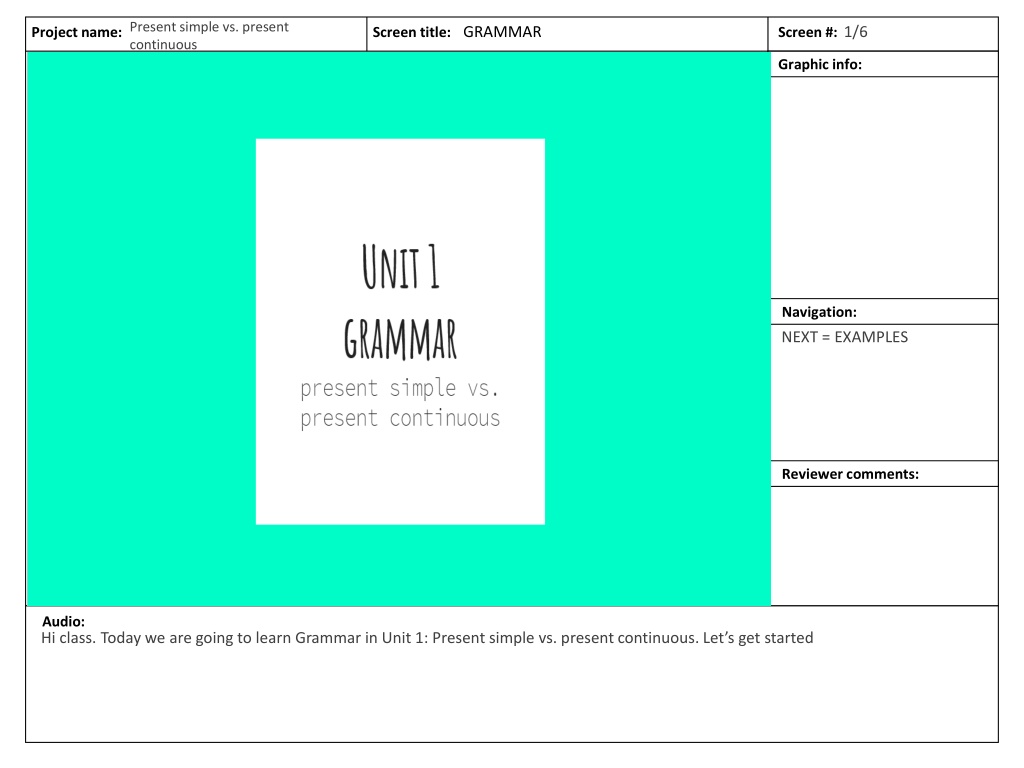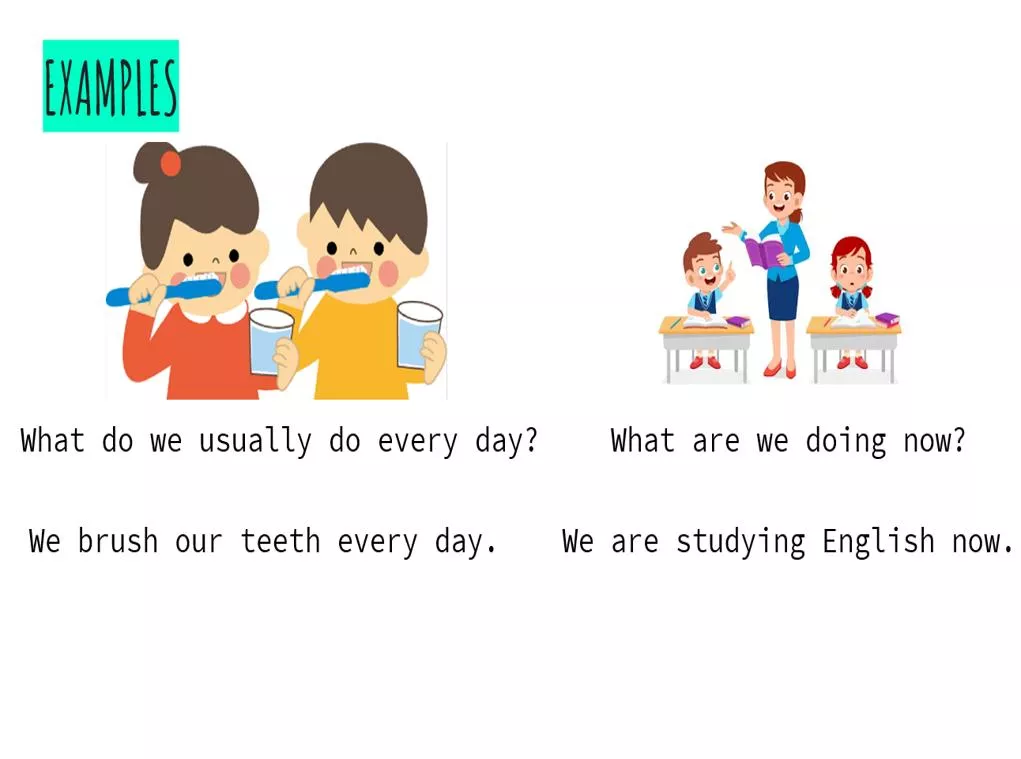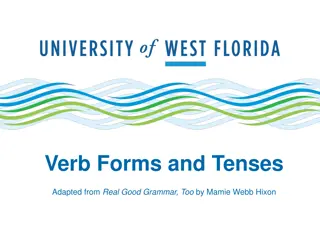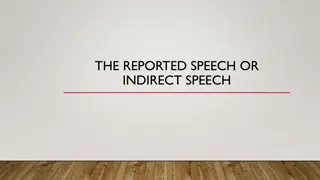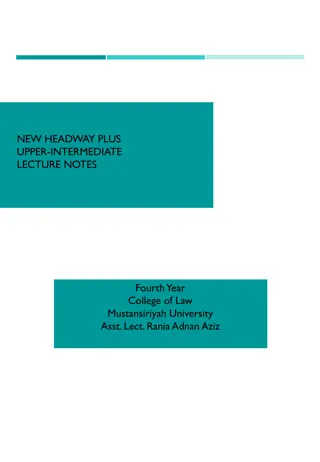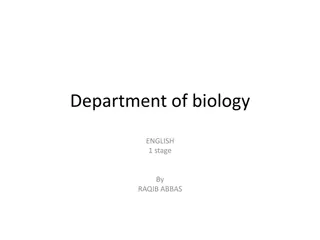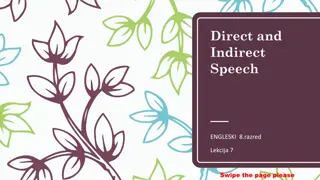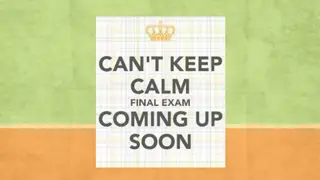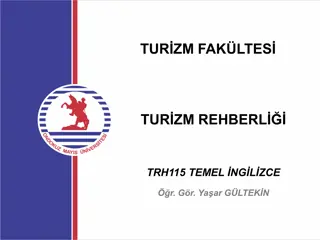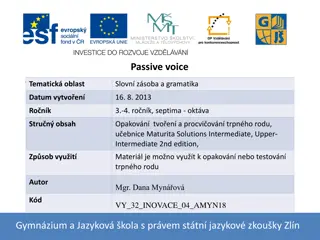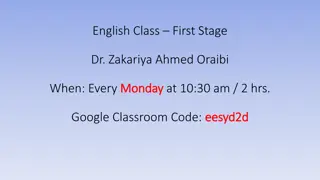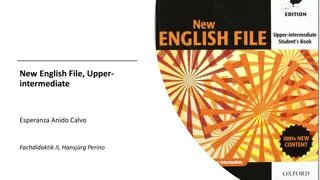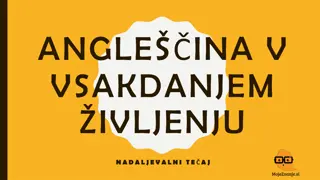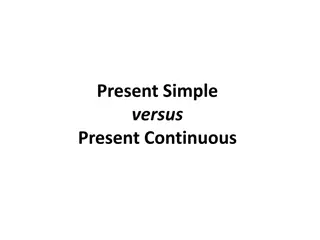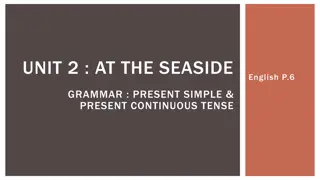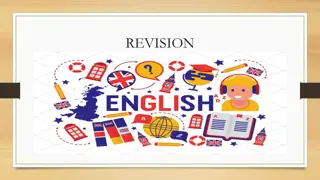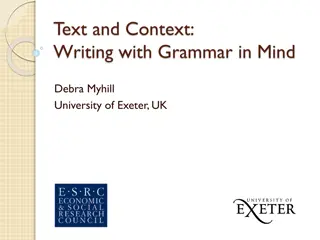Mastering Grammar: Present Simple vs. Present Continuous
Dive into the distinction between the present simple and present continuous tenses. Explore examples, meanings, forms, and practice exercises to enhance your understanding of these grammar concepts.
Download Presentation

Please find below an Image/Link to download the presentation.
The content on the website is provided AS IS for your information and personal use only. It may not be sold, licensed, or shared on other websites without obtaining consent from the author.If you encounter any issues during the download, it is possible that the publisher has removed the file from their server.
You are allowed to download the files provided on this website for personal or commercial use, subject to the condition that they are used lawfully. All files are the property of their respective owners.
The content on the website is provided AS IS for your information and personal use only. It may not be sold, licensed, or shared on other websites without obtaining consent from the author.
E N D
Presentation Transcript
Present simple vs. present continuous GRAMMAR 1/6 Project name: Screen title: Screen #: Graphic info: Navigation: NEXT = EXAMPLES Reviewer comments: Audio: Hi class. Today we are going to learn Grammar in Unit 1: Present simple vs. present continuous. Let s get started
Present simple vs. present continuous EXAMPLES 2/6 Project name: Screen title: Screen #: Graphic info: Pictures and texts will fade on when mentioned in the video Navigation: NEXT = MEANINGS Reviewer comments: Audio: I have some questions for you. First, look at the picture on the left and tell me What do we usually do every day? . (pause a few seconds). Yes, we brush our teeth every day. Then, look at another picture and tell me What are we doing now? (pause a few seconds). That s right. We are studying English now.
Present simple vs. present continuous MEANINGS 3/6 Project name: Screen title: Screen #: Graphic info: Pictures and texts will fade on when mentioned in the video Navigation: NEXT = FORMS Reviewer comments: Audio: So, can you find out the verb in each sentences? Yes. These are brush and are studying . What is the tense of the left sentences, class? (pause a few seconds). Yes, it is present simple to talk about things we do regularly. And how about the other? (pause a few seconds). It is present continuous tense. To talk about things which are happening at the moment of speaking.
Present simple vs. present continuous FORMS 4/6 Project name: Screen title: Screen #: Graphic info: Pictures and texts will fade on when mentioned in the video Navigation: NEXT = PRACTICE Reviewer comments: Audio: So now we will have a review on the forms of these tenses. Look at these examples and tell me the structure, negative form, and question form of each tense. (pause a few seconds). For the present simple, the structure is Subject + verb . Example for negative sentence is He doesn t brush his teeth every day. And the question sentence is Do you brush your teeth every day? . How about present continuous? Yes, the structure is Subject + to be + verb + ing . He is not studying English now is the negative sentence. And Are you studying English now? is question sentence.
Present simple vs. present continuous PRACTICE 5/6 Project name: Screen title: Screen #: Graphic info: Pictures and texts will fade on when mentioned in the video Navigation: NEXT = THANK YOU SLIDE Reviewer comments: Audio: Ok, after we have a quick review about these two tenses, I want you have some practice with the questions here What do your family member do in their daily routine? What are they doing now? (Pause for a few seconds). Ok, I will give you example answer: My mother cooks every day but now she is not cooking. She is working at her office. Now it s your turn to talk about your family member, such as your grandparent, your parents, your brother or sister.
Present simple vs. present continuous THANK YOU 6/6 Project name: Screen title: Screen #: Graphic info: Navigation: THE END Reviewer comments: Audio: That s all for today grammar lesson. See you in the next video.
